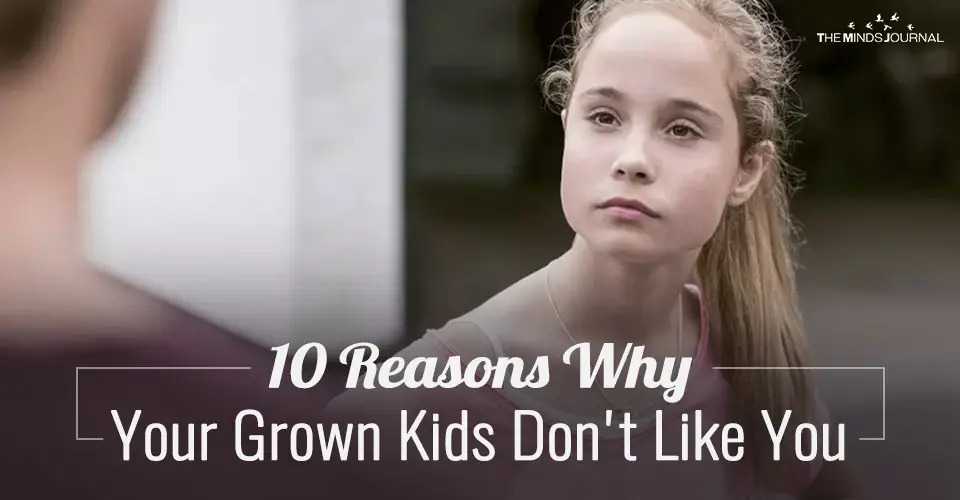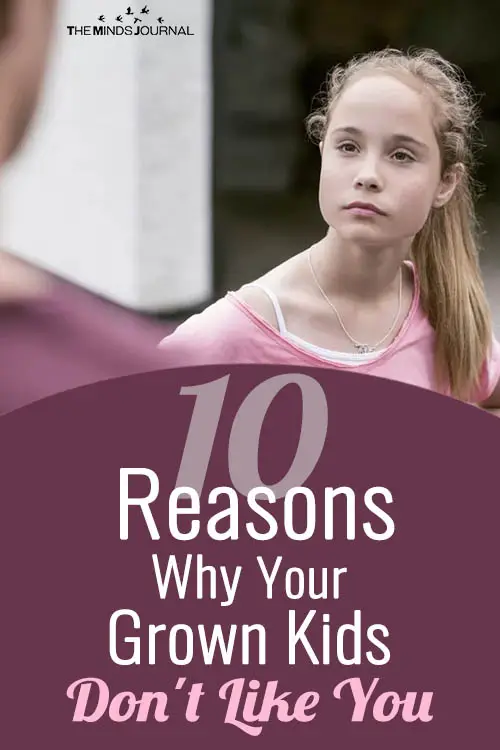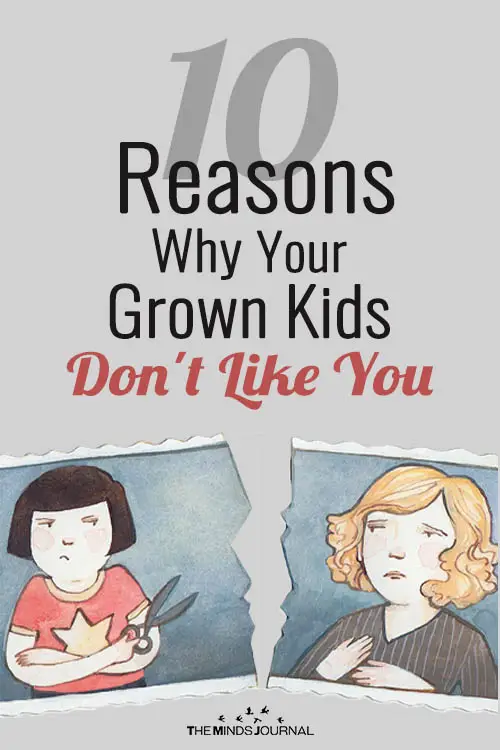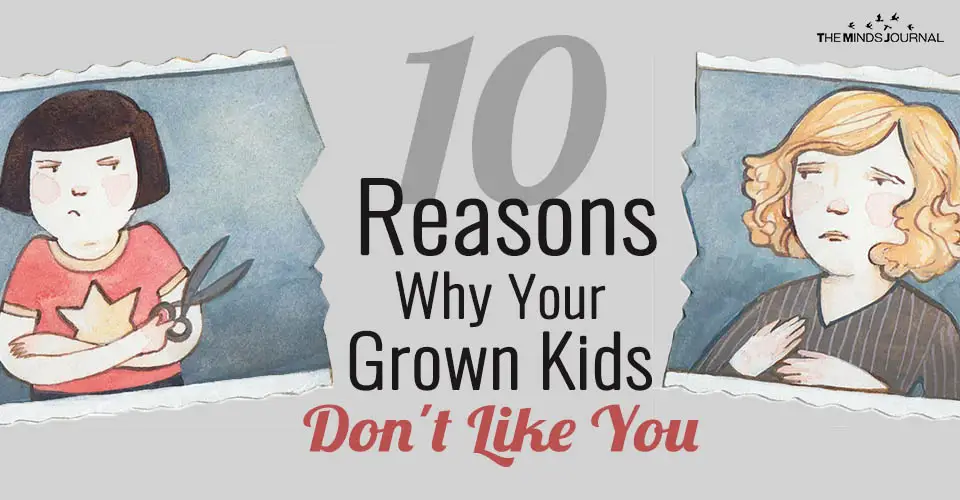Many times, the parent-child relationship has been a slippery slope for many. Do you ever have the feeling that your grown kids avoid or even hate you?
Wonder why they’re not coming home for the holidays? Upset because they never return your letters, calls, or texts? Estranged, alienated, or suffering silently (or not)?
Are the kids you always wanted to be your friends not only decidedly unfriendly but also still upset because of something you don’t even remember?
According to my post-parent clients, more than 40 social media groups for estranged parents, and recent research, here are the top ten reasons:

10 Reasons Why Your Grown Kids Avoid You and don’t get along with you
1. You insist on being right.
We all have different stories about the past, even one we shared. But as long as you insist on your version, they don’t have a right to theirs. Accept their stories as being true for them.
2. You don’t know who they are now.
Life has taught them lessons you don’t know. They’re not the same people they were as children, even if you think they are. Don‘t assume that you still know what they think and feel.
3. You’ve locked them into outgrown childhood roles.
She was a spendthrift, he was a ne’er do well, she was the good girl, he was the peacemaker. But now she manages a million-dollar budget, he has a responsible job, she’s a complete mess, and he gets in the thick of every family fight. Give them a chance to show you who they are now — you might be surprised.
4. You think the divorce doesn’t still bother them.
It might. Once again, explain that it wasn’t their fault. Admit your inability to prevent it. Acknowledge their pain, even if it was long ago. Let them tell you how it was for them without being defensive. Express your regret. And tell them you hope they can move on because you have.
Is your child still bothered by your divorce? Read 10 Tips To Heal A Child’s Heart After Parental Divorce
5. You can’t let them lead their own lives.
They’re adults now — they have a right to their lifestyle, religion, partners, decisions, and choices.
6. You ignore their boundaries.
You stick your nose in things that are none of your business, as their marriages. You tell their secrets to others, including their siblings. You can’t stop nagging, no matter how many times you tell them to do something they don’t want or choose not to do.
7. You listen, but you don’t hear them.
You jump in before they’ve finished. You tell them instead of asking them. You talk over or through them, not to them. Just be quiet, and let their words sink in before you jump in with a response. If you don’t understand something, ask them to explain it again.
8. You take sides.
Sibling quarrels aren’t your business anymore if they ever were. Let them work it out amongst themselves, no matter who you think is right. Refuse to mediate unless you can be truly neutral.
9. You triangulate.
If you can’t get what you want from one child, you try going through the other, or even through their or your spouses. You ask them to tell each other’s confidence. You draw a third person into an issue that’s only between the two of you — or should be.
10. You take liberties you’re not entitled to.
Just because you’re still their parent, you can’t interfere with their life. You need to back off and wait to be asked for your help, your opinion, and your understanding. Imagine there’s a door between you and them; knock first, and don’t enter unless invited, even if the door is more than a metaphor.
Are you too controlling as a parent? Is that why your grown kids hate you? Read Over-Controlling Parents: The Burden Of Being Over Controlled As A Child
Scharp, K.M. & McLaren, R.R. (2017) Uncertainty issues and management in adult children’s stories of estrangement with their parents. Journal of Social and Personal Relationships.
If you want to build a meaningful and positive relationship with your children, then you need to respect them and give them their space. That along with the above-mentioned pointers can help you navigate through all the turmoils between you and your kids if any.
If you want to know more about why your grown kids hate you, check out this video below:
References
Scharp, K.M. & McLaren, R.R. (2017) Uncertainty issues and management in adut children’s stories of estrangement with their parents. Journal of Social and Personal Relationships.
Written By Jane Adams
Originally Appeared In Psychology Today










Leave a Reply
You must be logged in to post a comment.